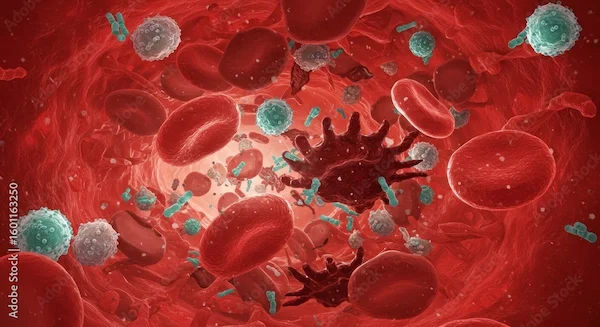Understanding the ANCA Test
Discover the ANCA (Antineutrophil Cytoplasmic Antibodies) test, its purpose in diagnosing autoimmune disorders, the procedure, and how results are interpreted.

Written by Dr. J T Hema Pratima
Reviewed by Dr. Dhankecha Mayank Dineshbhai MBBS
Last updated on 26th Aug, 2025

When it comes to diagnosing certain autoimmune diseases, doctors often recommend an ANCA test. If your doctor has suggested this test, you might be wondering what it is, why it’s needed, and what the results mean. Don’t worry, this guide will explain everything in simple terms so you can feel informed and confident.
What is the ANCA Test?
ANCA stands for Anti-Neutrophil Cytoplasmic Antibodies. These are special proteins produced by the immune system that mistakenly attack healthy cells, particularly neutrophils (a type of white blood cell). The ANCA test checks for these antibodies in your blood, helping doctors diagnose certain autoimmune conditions.
Consult a Top Specialist
Why is the ANCA Test Done?
Your doctor may recommend this test if you have symptoms that suggest an autoimmune disorder, particularly conditions like:
Vasculitis (inflammation of blood vessels)
Granulomatosis with Polyangiitis (GPA)
Microscopic Polyangiitis (MPA)
Eosinophilic Granulomatosis with Polyangiitis (EGPA)
Autoimmune kidney diseases (like glomerulonephritis)
Inflammatory bowel disease (IBD) (in some cases)
Common Symptoms That May Lead to an ANCA Test
If you experience any of the following, your doctor might suggest this test:
Persistent fever and fatigue
Unexplained weight loss
Joint or muscle pain
Skin rashes or sores
Sinus or lung problems (chronic cough, nosebleeds, shortness of breath)
Kidney issues (blood in urine, swelling in legs)
How is the ANCA Test Performed?
The test is simple, just a blood draw from your arm. No special preparation is needed, and you can eat or drink normally before the test. The sample is sent to a lab, where technicians check for two main types of ANCA:
1. c-ANCA (Cytoplasmic ANCA) – Often linked to Granulomatosis with Polyangiitis (GPA).
2. p-ANCA (Perinuclear ANCA) – More common in Microscopic Polyangiitis (MPA) and Eosinophilic Granulomatosis with Polyangiitis (EGPA).
Get Your Health Assessed
What Do the Results Mean?
Positive ANCA Test:
Suggests an autoimmune condition, but further tests (like biopsies or imaging) are needed for confirmation.
Not all positive results mean you have a disease—some healthy people may have low levels of ANCA.
Negative ANCA Test:
Most likely, you don’t have an ANCA-related disorder.
However, some patients with vasculitis may still test negative, so doctors consider symptoms too.
Your doctor will explain your results and what they mean for your health.
How Can You Manage ANCA-Related Conditions?
If diagnosed with an ANCA-associated disease, treatment usually involves:
Medications (steroids, immunosuppressants) to control inflammation.
Lifestyle changes (healthy diet, regular exercise, stress management).
Regular check-ups to monitor kidney and lung function.
Tips for a Healthier Life
Eat a balanced diet (fruits, vegetables, lean proteins).
Stay hydrated to support kidney health.
Avoid smoking, as it worsens inflammation.
Follow your doctor’s advice on medications and tests.
When to See a Doctor?
If you have persistent symptoms like fatigue, joint pain, or unexplained rashes, consult a doctor. Early diagnosis helps in better management of autoimmune diseases.
Need an ANCA Test or Expert Advice?
If your doctor has recommended an ANCA test or you’re experiencing concerning symptoms, you can book a consultation or lab test easily through Apollo 24|7. Early detection leads to better outcomes!
Final Thoughts
The ANCA test is a helpful tool in diagnosing autoimmune conditions. While a positive result can be concerning, remember that proper treatment and lifestyle changes can help manage these diseases effectively. Always discuss your results with your doctor and follow their guidance for the best care.
Consult a Top Specialist
Consult a Top Specialist

Dr Syed Mateen Pasha
General Physician
2 Years • MBBS
Bengaluru
PRESTIGE SHANTHINIKETAN - SOCIETY CLINIC, Bengaluru

Dr. Anand Ravi
General Physician
2 Years • MBBS
Bengaluru
PRESTIGE SHANTHINIKETAN - SOCIETY CLINIC, Bengaluru

Dr Aakash Andgi
General Physician/ Internal Medicine Specialist
9 Years • MBBS MD
Bengaluru
Apollo Clinic, JP nagar, Bengaluru

Dr. Syed Ismail Ali
General Practitioner
7 Years • MBBS
Hyderabad
Apollo 24|7 Clinic, Hyderabad

Dr. Mohamed Azeem
General Physician/ Internal Medicine Specialist
2 Years • MBBS,MD(Internal Medicine) CCEBDM
Karaikudi
Apollo Hospitals Karaikudi, Karaikudi
Get Your Health Assessed
₹3200(₹8000)60% off





